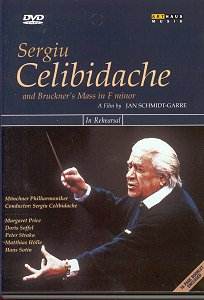 Composer: Gaetano Donizetti
Composer: Gaetano Donizetti
Works: La Figlia del Reggimento
Performers: Lina Pagliughi (soprano), Risa Corsi (mezzo soprano), Cesare Valletti (tenor), Sesto Bruscantini (bass), Eraldo Coda (bass), Orchestra Lirica e Coro di Milano della RAI, Mario Rossi (conductor)
Recording: Recorded in Milan on 27 August 1950
Label: WARNER FONIT 8573 87493-2 2CDs [91.49]
The history of Gaetano Donizetti’s La Figlia del Reggimento is a remarkable tapestry of shifting receptions, reflecting the complexities of 19th-century operatic culture. Premiering in Paris in 1840, the opera initially suffered from a lukewarm response, yet it soon garnered acclaim in various revivals. Its charm and comedic narrative, featuring the trials of Maria, a girl raised in a regiment, and her romantic entanglement with the tenor Tonio, underscore the work’s enduring appeal. The opera’s lightheartedness, juxtaposed with its melodramatic twists, reveals Donizetti’s mastery of both vocal and orchestral writing, a trait that would influence subsequent composers like Offenbach and Strauss.
This recording, featuring Lina Pagliughi in the role of Maria, presents an engaging interpretation of the piece. Pagliughi’s coloratura is particularly notable, showcasing her ability to navigate the score’s demanding passages with both agility and clarity, although her comedic delivery occasionally lacks the necessary vivacity that would elevate the humor inherent in the text. Cesare Valletti’s portrayal of Tonio complements her well; his tenor possesses a buoyant lightness that matches the spirited nature of the opera, particularly evident in the exuberant duet “Ah, mes amis!” where their voices dance around each other with delightful interplay.
Risa Corsi’s portrayal of the Marchesa di Berckenfield captures both the character’s authoritative presence and her underlying vulnerability. Her interpretation effectively channels the spirit of Figaro’s Marcellina, albeit with a more restrained emotional palette. Sesto Bruscantini, well on his way to becoming a legendary buffo bass, delivers a strong performance as Sulpizio, characterized by impeccable diction and a comedic flair that brings necessary levity to the proceedings. The RAI orchestra, under Mario Rossi’s direction, provides a vibrant accompaniment, rich with military fanfares and spirited choruses. However, the ensemble’s pitch accuracy is at times suspect, which can detract from the overall cohesion of the performance.
The sound quality of this recording reflects its era, with a warmth that enhances the natural timbres of the voices, though it occasionally lacks the clarity and depth found in more modern recordings. The absence of spoken dialogue, typical of later Italian performances, streamlines the narrative but may also dilute some of the original charm that the French version offered. Comparatively, this recording holds its own against more recent interpretations, yet it lacks the brilliant vibrancy and character that singers like Joan Sutherland brought to the role of Maria, which has since set a high benchmark for future renditions.
La Figlia del Reggimento, with its delightful blend of humor and heart, remains a staple of the operatic repertoire, and this recording captures an important moment in its revival. While it may not be definitive, the performances are earnest and spirited, allowing listeners to appreciate the work’s melodic charms and comedic intricacies. The recording serves as a valuable document of its time, showcasing the talents of its performers and the enduring appeal of Donizetti’s genius.



